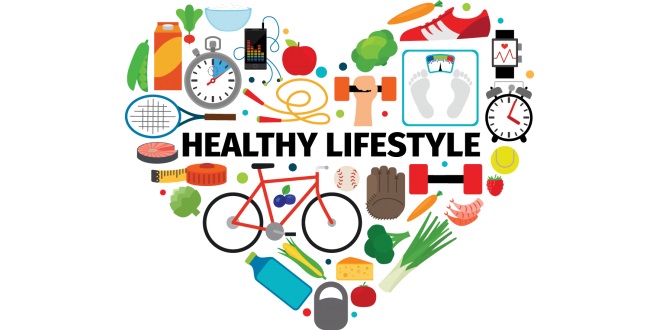Adopting a healthy lifestyle is essential for long-term physical and mental well-being. By incorporating small changes into daily routines, individuals can experience significant improvements in their health. This guide offers valuable tips on nutrition, exercise, sleep, hydration, and stress management to help you lead a healthier, happier life.
Nutrition: Building a Balanced Diet
A balanced diet is the cornerstone of a healthy lifestyle. Aim to include a variety of foods from all food groups:
Fruits and Vegetables: Strive to fill half your plate with fruits and vegetables. These are rich in vitamins, minerals, and fiber.
Whole Grains: Choose whole grains like brown rice, quinoa, and whole wheat bread over refined grains. Whole grains provide essential nutrients and help with digestion.
Lean Proteins: Incorporate lean proteins such as chicken, fish, beans, and legumes. Proteins are vital for muscle repair and overall body function.
Healthy Fats: Opt for healthy fats found in avocados, nuts, seeds, and olive oil. These fats are beneficial for heart health.
Exercise: Moving Your Body
Regular physical activity is crucial for maintaining a healthy lifestyle. Aim for at least 150 minutes of moderate-intensity exercise each week. This can include:
Cardio Workouts: Activities such as brisk walking, jogging, swimming, or cycling improve cardiovascular health.
Strength Training: Incorporate strength training exercises like weight lifting or body-weight exercises twice a week to build muscle and improve bone density.
Flexibility and Balance: Activities such as yoga or tai chi enhance flexibility and balance, reducing the risk of injury.
Sleep: Rest and Recovery
Quality sleep is essential for overall health. Adults should aim for 7-9 hours of sleep per night. Tips for better sleep include:
Consistent Sleep Schedule: Go to bed and wake up at the same time every day, even on weekends.
Sleep Environment: Create a restful environment by keeping your bedroom dark, quiet, and cool.
Limiting Screen Time: Avoid screens at least an hour before bed to reduce blue light exposure, which can interfere with sleep.
Hydration: The Importance of Water
Staying hydrated is vital for bodily functions. Water aids in digestion, nutrient absorption, and temperature regulation. Aim to drink at least 8 cups (2 liters) of water daily. Tips to stay hydrated include:
Carry a Water Bottle: Keep a reusable water bottle with you to encourage regular sipping.
Infuse Your Water: Add slices of fruits or herbs to your water for a refreshing taste.
Monitor Your Intake: Use apps or set reminders to ensure you’re drinking enough throughout the day.
Stress Management: Finding Balance
Managing stress is critical for maintaining a healthy lifestyle. Chronic stress can lead to various health issues, including heart disease and mental health disorders. Effective stress management techniques include:
Mindfulness and Meditation: Practicing mindfulness or meditation can reduce stress and improve mental clarity.
Physical Activity: Regular exercise is a natural stress reliever and mood booster.
Hobbies and Interests: Engage in activities you enjoy to take your mind off stressors.
Social Connections: Maintain strong relationships with friends and family to provide emotional support.
Conclusion
By incorporating these healthy lifestyle tips into your daily routine, you can improve your overall well-being and enjoy a more balanced life. Remember, small changes can lead to significant results over time. Stay consistent and make healthy choices a regular part of your life.










